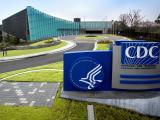Oct 21, 2008 (CIDRAP News) Drawing on the expertise of more than 150 health experts, Trust for America's Health (TFAH), a nonprofit health advocacy group in Washington, DC, today released a report designed to help the next president and Congress reform the public health system to improve the nation's health and emergency preparedness.
At a press conference today, Jeff Levi, PhD, executive director of TFAH, told reporters that the country is losing ground on battling preventable diseases such as diabetes and obesity and could stall in its efforts to prepare for a pandemic or other public health emergency. "We believe Americans deserve better, and these problems place us at a competitive disadvantage," he said in introducing the 119-page report.
Levi said both of the major presidential candidates are concerned about the nation's public health problems and have said new solutions are needed, as described in recent articles in the New England Journal of Medicine (NEJM).
Levi said the report, "Blueprint for a Healthier America: Modernizing the Federal Public Health System to Focus on Prevention and Preparedness," contains recommendations that came from a yearlong consensus-building effort among the 150 experts. The report also includes a number of public opinion surveys on Americans' perceptions of natural disaster and disease threats.
Alan Quinlan, president of Greenberg Quinlan Rosner Research, said at the press conference that opinion polling on behalf of TFAH suggests that 51% of Americans think the country is somewhat prepared for a major disaster such as a hurricane, but not as well as it should be. "In the back of their minds they're hoping that the government is ready. It's a soft confidence in government that we are prepared," he said.
Bill McInturff, partner and cofounder of Public Opinion Strategies, which also conducted polling for the TFAH report, told reporters that Americans are anxious to hear about solutions to public health problems. "The normal partisan breaks get clearly fuzzy," he said. However, public health concerns will battle for attention and funding, especially given the difficult economic environment. "The issues will have to fight for their piece of the pie," he said.
A $20 billion funding gap
Levi emphasized that the TFAH "blueprint" proposes a public health and preparedness strategy that doesn't depend solely on the federal government but envisions critical roles for state and local governments. He said some of the key themes of the blueprint are holding funding recipients accountable for progress and results and making prevention a cornerstone of the nation's health, not just an afterthought.
In the report, TFAH projects a $20 billion annual shortfall in funding for critical public health problems. Establishing a stable funding stream though various options outlined in the report would require increases of $12 billion at the federal level and $8 billion at state and local levels.
One option could include a "wellness trust"an independent entity that would fund public health activities and infrastructure improvements with the support of public health agencies and private insurers. TFAH also suggests creating a matching requirement for state and local recipients of new public health funding and private-public partnerships at the state and local levels.
The report recommends that the next president appoint a Department of Health and Human Services (HHS) secretary who has a strong understanding of public health, name a public health task force within 90 days of taking office to help set short- and long-term national health goals and make policy recommendations, and issue an executive order that makes improving the nation's health a priority.
Pandemic and emergency preparedness
The report urges the next administration to ensure that emergency preparedness is part of the health reform debate. Levi told reporters that strengthening surge capacity is "the single biggest and hardest issue for health preparedness."
To make best use of federal resources, TFAH recommends that the next administration designate a single official at HHS to oversee all emergency preparedness activities and ensure coordination across other federal agencies that have a role in preparedness.
Among several specific suggestions for influenza pandemic preparedness, TFAH recommends developing a "Pandemic Vaccine Research and Development Master Plan," setting more ambitious goals for producing a pandemic vaccine, streamlining the licensing process for flu vaccines, implementing a nationwide system to track the use, safety, and efficacy of vaccines, and increasing the federal stockpile of antiviral drugs to enable it to treat 25% of the population.
Food safety considerations
Many of TFAH's recommendations for improving the nation's food safety system were detailed in a report that the group released in April. In that report, TFAH highlighted several problems with the nation's current food safety system, including an underfunded Food and Drug Administration (FDA), outdated laws, and safety responsibilities that are spread among 15 different federal agencies.
TFAH has recommended that federal officials create a single food safety agency to improve oversight and the efficiency of tasks such surveillance and foodborne illness outbreak response.
A public opinion poll included in the new report found that 78% of Americans believe that a major foodborne disease outbreak will occur again in the next 5 to 10 years, that 65% believe protecting the nation's food supply should be a primary government responsibility, and that 88% are concerned about the safety of imported food products.
See also:
Oct 21 TFAH press release
TFAH report on modernizing public health
Apr 30 CIDRAP News story "Health group urges overhaul of US food safety program"
Oct 9 NEJM article on John McCain's health reform views
http://content.nejm.org/cgi/content/full/359/15/1537-a
Oct 9 NEJM article on Barack Obama's health reform views
http://content.nejm.org/cgi/content/full/359/15/1537



















